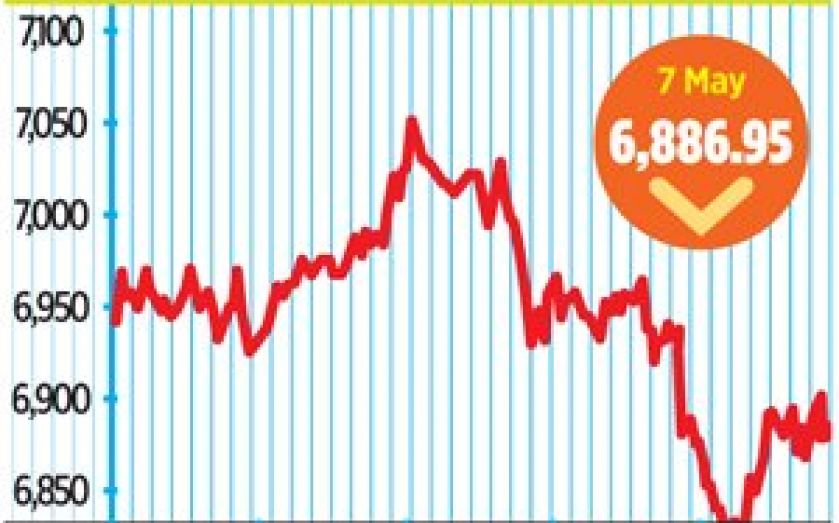FTSE slumps on market jitters over close vote – London Report

BRITAIN’S top share index fell to one-month lows yesterday as voting got underway in what looks set to be one of the country’s closest national elections in decades.
With the result uncertain, the vote could yield a weak government, push the world’s fifth-largest economy a step closer to leaving the European Union and stoke Scottish desires for secession.
The blue-chip FTSE 100 index, which hit a record high of 7,122.74 points last month, closed down 0.7 per cent at 6,886.95 points, marking its lowest level since early April.
Despite the pull-back, the FTSE remains up by around five per cent since the start of 2015.
Earlier opinion polls had put the Conservatives neck-and-neck with the opposition Labour party, while the Scottish National Party (SNP) could emerge as the third-biggest party.
A further risk stems from the Conservatives promise of a referendum on Britain’s membership of the European Union by the end of 2017, if they win. The polls show that no one party is on track to win an overall majority.
Uncertainty over the result has affected sterling more than stocks, which have been buoyed by a British economic recovery and record low interest rates.
Nevertheless, some traders said the risk of a “hung” parliament – the term for one in which no single party can hold a majority in parliament – was weighing on the FTSE 100.
Shares in supermarket operator WM Morrison fell 6.6 per cent, making it the worst performer on the FTSE 100, after the company reported deteriorating sales.
Among stocks gaining ground, brewer SABMiller gained 3.7 per cent, with traders citing talk of a possible bid from rival Anheuser-Busch Inbev. Both companies declined to comment on the speculation. Data centre provider Telecity, which is in the FTSE 250, surged by around 20 per cent after entering takeover talks with Equinix.
Kyri Kangellaris, director at Horizon Stockbroking, expected the FTSE to fall over the next month or so as the country’s politicians sought to form a new coalition government, but then recover thanks partly to Britain’s economic growth. “Another coalition government is the most likely outcome. The market will drift off while there is uncertainty over the make-up of that coalition, but once it is formed, the market should start to move higher again,” he said.